- +1 204-898-8510
- immigration@mesidor.ca
- 201-575 St. Mary's Rd, Winnipeg, MB R2M 3L6 Canada
- Home
- Canada Strengthens Immigration Fraud Prevention Measures
Canada Strengthens Immigration Fraud Prevention Measures

As part of Fraud Prevention Month, Canada has announced a series of robust measures to combat immigration fraud, safeguarding the integrity of its immigration system. The Honourable Marc Miller, Minister of Immigration, Refugees and Citizenship, outlined these initiatives in a recent announcement, emphasizing the importance of protecting honest applicants and ensuring a fair process for all.
Immigration fraud is a pervasive issue that affects thousands of individuals every year. From fake documents to unauthorized representatives charging exorbitant fees, these fraudulent practices not only exploit vulnerable individuals but also undermine the credibility of Canada’s immigration framework. In this article, we’ll explore the new measures introduced to combat immigration fraud and provide actionable tips for applicants to protect themselves.
The Growing Challenge of Immigration Fraud in Canada
The scale of immigration fraud in Canada is significant. In 2024 alone, authorities investigated an average of over 9,000 suspected fraud cases every month. These investigations led to thousands of rejected applications and tens of thousands of entry bans for individuals engaging in fraudulent activities.
Common forms of immigration fraud include:
- Fake Documentation: Submission of false educational credentials, employment records, or other supporting documents.
- Unauthorized Representatives: Unlicensed individuals or organizations charging high fees for fraudulent services.
- Misinformation: Dissemination of false information about immigration pathways, such as study permits or asylum processes.
Such fraudulent activities harm applicants, delay legitimate applications, and strain the resources of Immigration, Refugees and Citizenship Canada (IRCC).
New Measures to Combat Immigration Fraud
To address these challenges, Canada has introduced several initiatives to strengthen its immigration system and deter fraudulent activities. These measures, as detailed in the official announcement, include the following:
Tougher Penalties for Dishonest Representatives
The government has introduced stricter penalties for unauthorized or dishonest immigration representatives. Those found guilty of assisting with fraudulent applications now face fines of up to $1.5 million. This measure aims to deter bad actors and encourage applicants to seek advice only from authorized professionals, such as licensed immigration consultants, lawyers, or notaries.
Reforms to the Express Entry System
Fraudulent practices in the Express Entry system, such as the illegal buying or selling of Labour Market Impact Assessments (LMIAs), have been a growing concern. The government has implemented reforms to reduce these abuses, ensuring that only qualified candidates are selected for permanent residency.
Combating Misinformation
Misinformation about Canada’s immigration pathways has led to exploitation of hopeful applicants. To counter this, the government has launched initiatives to provide accurate and transparent information about study permits, asylum processes, and other immigration programs. These efforts aim to empower applicants with reliable guidance.
Enhanced Border Protections
As part of Canada’s Border Plan, additional measures have been introduced to protect the country’s borders and identify fraudulent activities early in the process. These efforts are critical to maintaining the integrity of Canada’s immigration system.
How Applicants Can Protect Themselves
While the government is taking significant steps to combat immigration fraud, applicants also play a crucial role in safeguarding their own interests. Here are some practical tips to ensure a safe and legitimate immigration process:
- Consult Authorized Representatives: Only licensed immigration consultants, lawyers, or notaries are legally allowed to charge fees for immigration advice. Verify a representative’s credentials through the College of Immigration and Citizenship Consultants.
- Be Wary of False Promises: Avoid individuals or organizations that guarantee approvals or offer shortcuts to permanent residency. These are often signs of fraudulent activity.
- Use Free Resources: All necessary forms and information for Canadian immigration applications are available for free on the official IRCC website.
- Report Suspicious Activity: If you encounter potential fraud, report it to the appropriate authorities. Learn more about recognizing and reporting fraud on the IRCC fraud prevention page.
Why Fraud Prevention Matters
Fraud prevention is essential not only for protecting Canada’s immigration system but also for safeguarding the dreams of individuals who genuinely wish to contribute to the country. By taking decisive action against fraud, Canada ensures a fair and transparent process that benefits applicants and society as a whole.
Conclusion
At Mesidor Immigration, we understand the complexities of the Canadian immigration process and the importance of accurate, reliable guidance. As Canada continues to strengthen its fraud prevention measures, it’s more important than ever to work with authorized professionals who prioritize your best interests.
If you’re considering immigrating to Canada or need assistance with your application, we’re here to help. Contact us today for a personalized immigration eligibility assessment. Together, we can navigate the process with confidence and integrity.
Explore More Articles
Click here to explore other recent articles by Mesidor Immigration.
Search the Site
Recent Immigration News Posts
- Opportunities and Shifts: Your Mid-2025 Canadian Immigration News Update
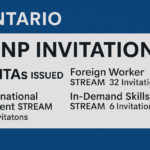
- The Strong Borders Act: What Immigrants and Asylum Seekers Need to Know
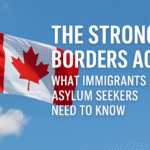
- A Wave of Canadian Immigration Changes: What You Need to Know in June 2025

- PSTQ Québec 2025 : Votre Guide Essentiel du Programme de Sélection des Travailleurs Qualifiés
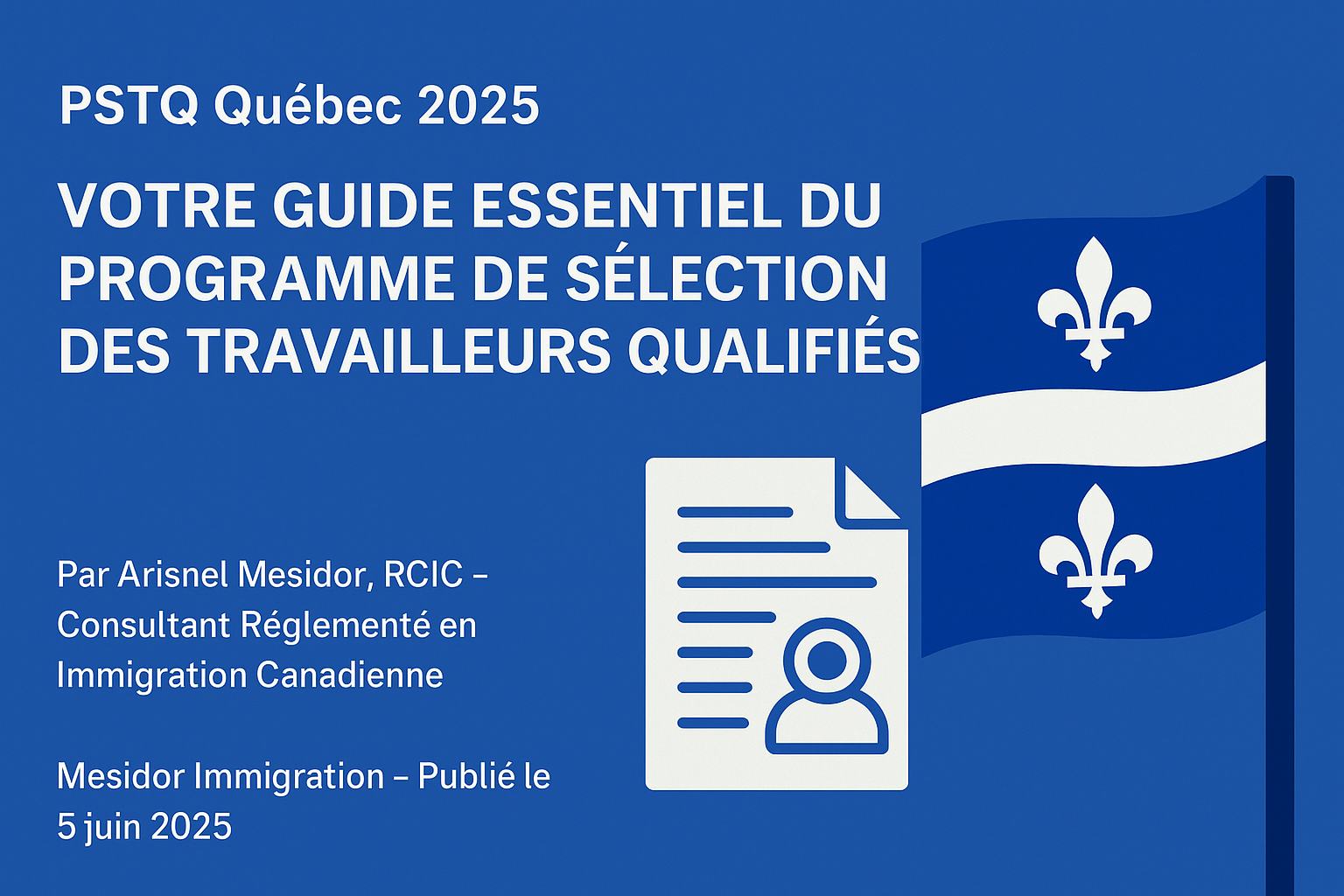
- June 5, 2025: Urgent! 4 Key Canadian Immigration Highlights & Updates

- Ontario Draws, Express Entry Buzz & New Asylum Rules – Your In-Depth Latest Canadian Immigration News for June 4, 2025
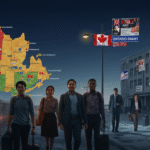
- Ontario Draws, Express Entry Buzz & New Asylum Rules – Your In-Depth Latest Canadian Immigration News for June 4, 2025.
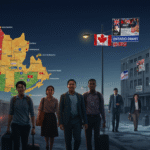
- Navigating Express Entry, PNP Draws, Rural Pathways, and Economic Shifts for Aspiring Newcomers
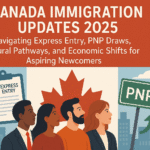
- Decoding the Shifting Canadian Immigration Landscape: 4 Crucial Updates You Need to Know!

- Decoding the Shifting Canadian Immigration Landscape: 4 Crucial Updates You Need to Know!

- Navigating the Shifting Landscape of Canadian Immigration: June 2, 2025 Update

- IEC Japanese Youth: Unlock Twice the Canadian Experience!

- Port of Entry Work Permit Changes: What You Need to Know

- Canada’s 2025-2027 Immigration Policy: Key Updates and Strategic Shifts

- Education-Targeted Express Entry Draw #344: Key Highlights


Recent Comments